Introduction
As the world gets older, there is a growing need for comprehensive elderly and palliative care. With increasing life expectancy, many people are experiencing chronic illnesses, disabilities and other age related health issues that need specialized care. Elderly care focuses on keeping the health, dignity and independence of aging individuals while palliative care relieves symptoms and improves life of those with serious illnesses.
 Many times, what our elderly loved ones need is the comfort of familiar surroundings and personalized care. Bedside nursing offers the perfect solution, bringing essential medical care right to their homes.
Many times, what our elderly loved ones need is the comfort of familiar surroundings and personalized care. Bedside nursing offers the perfect solution, bringing essential medical care right to their homes.
In Uganda, the elderly population is growing. According to Uganda Bureau of Statistics, the number of older persons (60 years and above) was approximately 1.6 million in 2014, which is about 4.6% of the total population. Projections indicate that this number will rise to 5.5 million by 2050.
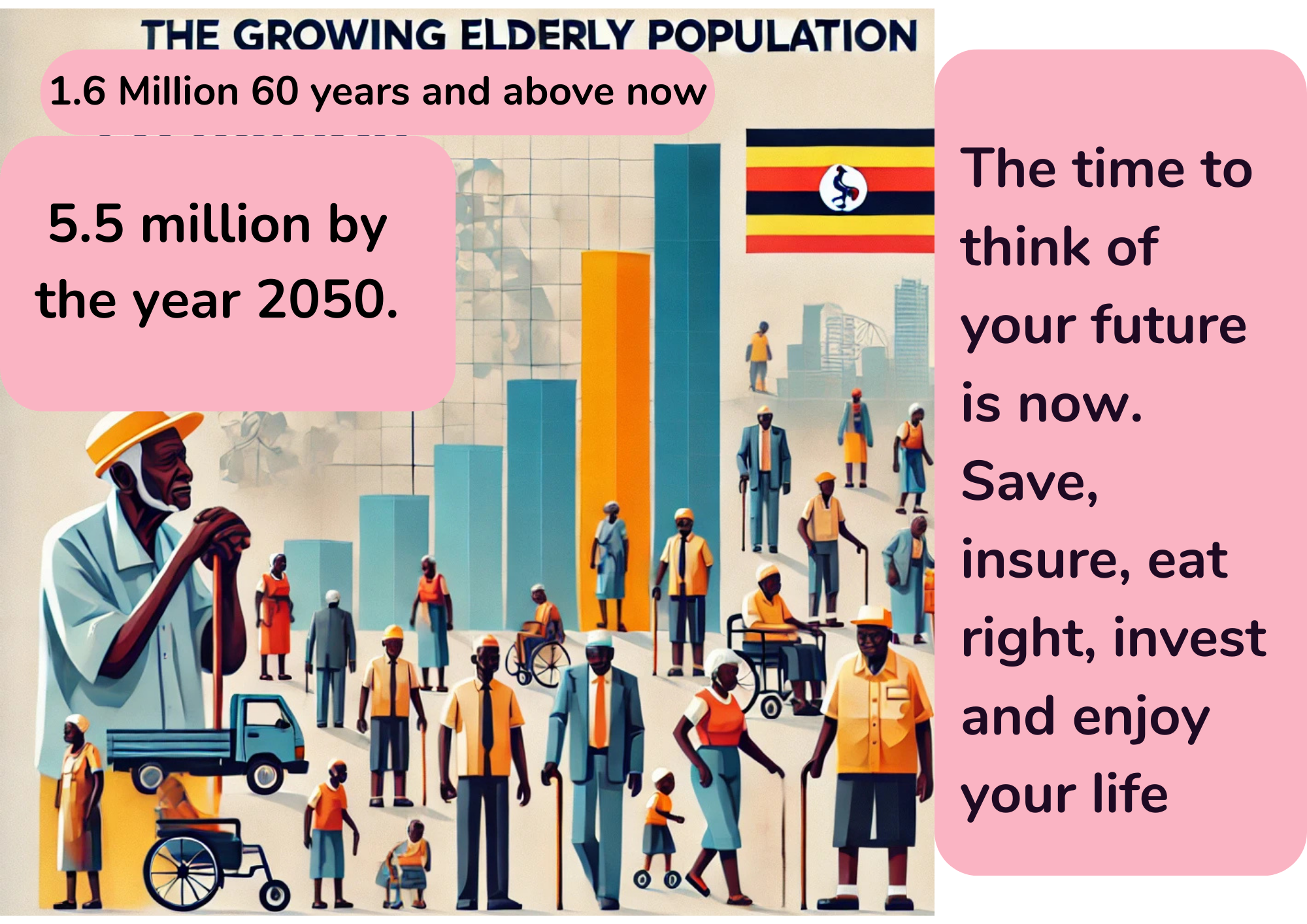 Plan for your bedside nursing care while your hair is still black — secure your future health today.
Plan for your bedside nursing care while your hair is still black — secure your future health today.
Palliative care services in Uganda have also grown. As of 2020, there were 226 accredited palliative care facilities across 135 districts covering about 88.5% of the population. However 30 districts still had no accredited palliative care facility, so there is still room for expansion. KNH Bedside nurses has come in as the one solution to provide expert care at the comfort of your home wherever you may be in Uganda and supplement the limited resources.
Bedside nursing plays a big role in giving personalized and compassionate care to elderly patients whether at home or in hospital.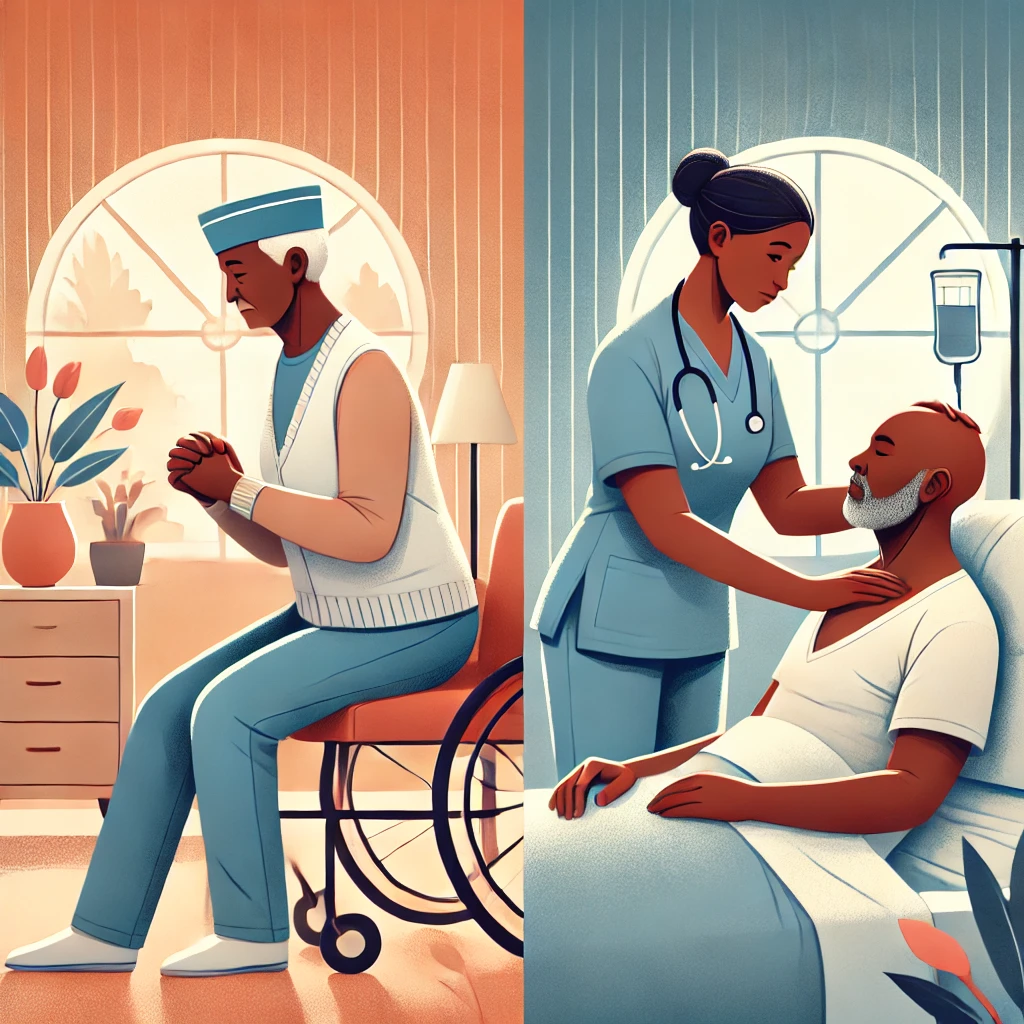 Caring with Compassion, Supporting Independence in Aging, while offering Comfort in Serious Illness.
Caring with Compassion, Supporting Independence in Aging, while offering Comfort in Serious Illness.
This article looks at the importance of elderly and palliative care, the challenges and the future of bedside nursing for aging populations.
Understanding Elderly Care
Elderly care encompasses a range of healthcare services that support older adults as they navigate the physical, emotional, and social challenges of aging. In Uganda, as the population of elderly individuals continues to grow, these services are becoming increasingly important. Elderly care in Uganda includes assistance with daily activities, medical care, emotional support, and palliative care for those with life-limiting conditions.  KNH nurses Provide Care, preserve your Dignity, and Support Every Day tasks with a smile.
KNH nurses Provide Care, preserve your Dignity, and Support Every Day tasks with a smile.
In a Ugandan context, elderly care faces unique challenges, such as limited access to healthcare resources, particularly in rural areas, and a shortage of specialized services for older adults. Many elderly individuals are often cared for by family members, but these caregivers may lack the training, resources, or support to provide optimal care.
There is a need for trained healthcare professionals to assist families and communities in caring for older adults.
Medical care for the elderly in Uganda often includes managing chronic conditions such as hypertension, diabetes, and arthritis, which are prevalent in older populations. However, many older Ugandans may also face limited access to affordable healthcare services, making it difficult for them to receive consistent care. Emotional and mental health support, including addressing issues like depression and isolation, is also crucial, as many elderly individuals in Uganda experience a sense of loneliness, especially if they live in isolated areas. 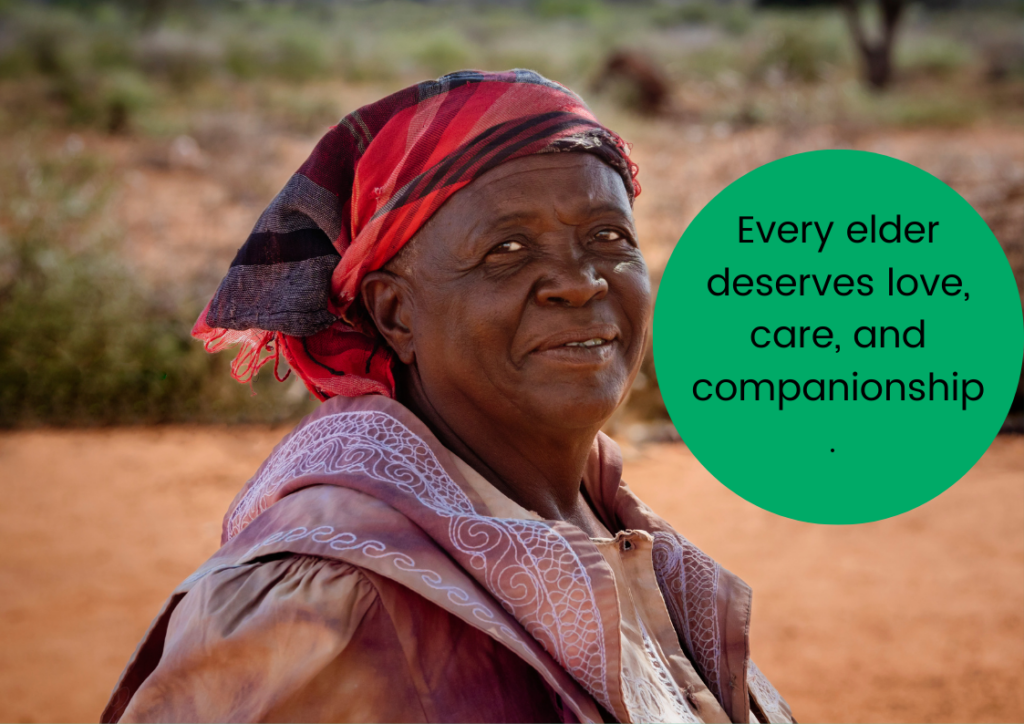 Let’s come together to support those who need us most.
Let’s come together to support those who need us most.
Palliative care, particularly for those with life-limiting conditions such as cancer, is another critical aspect of elderly care in Uganda. Palliative care focuses on alleviating suffering and improving the quality of life for patients, ensuring that they are comfortable in their final stages of life. Unfortunately, in many areas of Uganda, access to palliative care services is limited, and there is a pressing need to train more healthcare professionals in this specialized field.
By investing in bedside nursing, expanding home-based care programs, and advocating for better policies, Uganda can improve the quality of life for its elderly population. This would ensure that older individuals receive the care they need with dignity, respect, and comfort, no matter their location. A collaborative approach involving healthcare professionals, families, and policymakers will help to build a future where elderly care in Uganda becomes more accessible and effective.
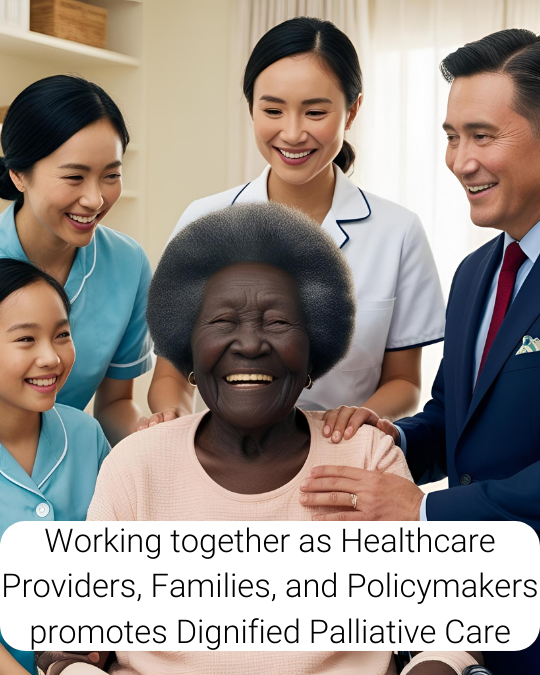
When we unite, we ensure elderly patients receive the dignified palliative care they deserve. 🏥💙 Let’s make bedside nursing a bridge to comfort and community. #PalliativeCare #BedsideNursing #ElderlyCare #CompassionInAction
Why Elderly Care Matters
• Enhancing Quality of Life: Compassionate elderly care ensures that seniors age with dignity and comfort.
• Preventing Health Complications: Regular monitoring and early intervention help manage chronic conditions and prevent complications.
• Providing Emotional and Social Support: Older adults often experience loneliness, making companionship essential to holistic care.
• Reducing Hospital Visits: Proper home-based care minimizes unnecessary hospital admissions, improving the well-being of elderly individuals. Also read https://www.knhbedsidenurses.com/wp-content/uploads/2024/10/3-Benefits-of-Bedside-Nursing-%F0%9F%92%8920th-Aug.mp4 to know the signs that Bedside nursing is important for you or your loved one. Minimize hospital visits and enhance your comfort by hiring a dedicated bedside nurse for personalized palliative care. From medication refills to guiding you through crowded lines, KNH nurses are here to support you every step of the way. Your care, your peace, at home. #ElderlyCare #PalliativeCare #KNHCompassion
Minimize hospital visits and enhance your comfort by hiring a dedicated bedside nurse for personalized palliative care. From medication refills to guiding you through crowded lines, KNH nurses are here to support you every step of the way. Your care, your peace, at home. #ElderlyCare #PalliativeCare #KNHCompassion
Common Health Issues Among the Elderly
Globally, elderly individuals face a variety of health challenges, including:
• Chronic Diseases: Hypertension, diabetes, arthritis, and cardiovascular diseases require long-term management.
• Cognitive Decline: Alzheimer’s disease and other dementias impact memory, thinking, and decision-making abilities.
• Mobility Issues: Joint problems, osteoporosis, and muscle weakness increase the risk of falls and fractures.
• Mental Health Concerns: Depression and anxiety are common due to isolation, grief, and declining physical health.
 KNH is just a call away to help schedule an appointment for you and your loved ones.
KNH is just a call away to help schedule an appointment for you and your loved ones.
A 2018 study by the Ugandan Ministry of Gender, Labor, and Social Development found that many older persons suffered from stroke, diabetes, hypertension, trachoma, and blindness, often leading to long-term disability and dependence on caregivers. Similar trends can be observed in many African, Asian, and Western countries.
The Role of Bedside Nursing in Elderly Care
Bedside nurses are essential in delivering personalized and professional care to elderly patients. Their responsibilities include:
• Daily Monitoring: Tracking vital signs, medication intake, and overall well-being.
• Personalized Care Plans: Developing care routines tailored to an individual’s medical and personal needs.
• Companionship and Emotional Support: Reducing loneliness and promoting mental well-being.
• Assisting with Mobility: Helping elderly patients move safely to prevent falls and injuries.
• Wound and Skin Care: Managing bedsores, infections, and other age-related skin conditions.
 Every elderly person deserves dignity, comfort, and support. From mobility challenges to chronic conditions, the need for compassionate bedside nursing and palliative care has never been more vital.
Every elderly person deserves dignity, comfort, and support. From mobility challenges to chronic conditions, the need for compassionate bedside nursing and palliative care has never been more vital.
Home-Based vs. Hospital-Based Elderly Care
While some elderly individuals receive care in hospitals or specialized facilities, many prefer home-based care. Organizations worldwide, including those in Uganda, provide trained caregivers to offer bedside nursing services in home settings. Home-based care enables seniors to remain in a familiar and comfortable environment while receiving medical attention.
Palliative Care for the Elderly
Palliative care improves the quality of life for elderly individuals with life-limiting illnesses. Bedside nurses play a critical role in improving general quality of life through the following:
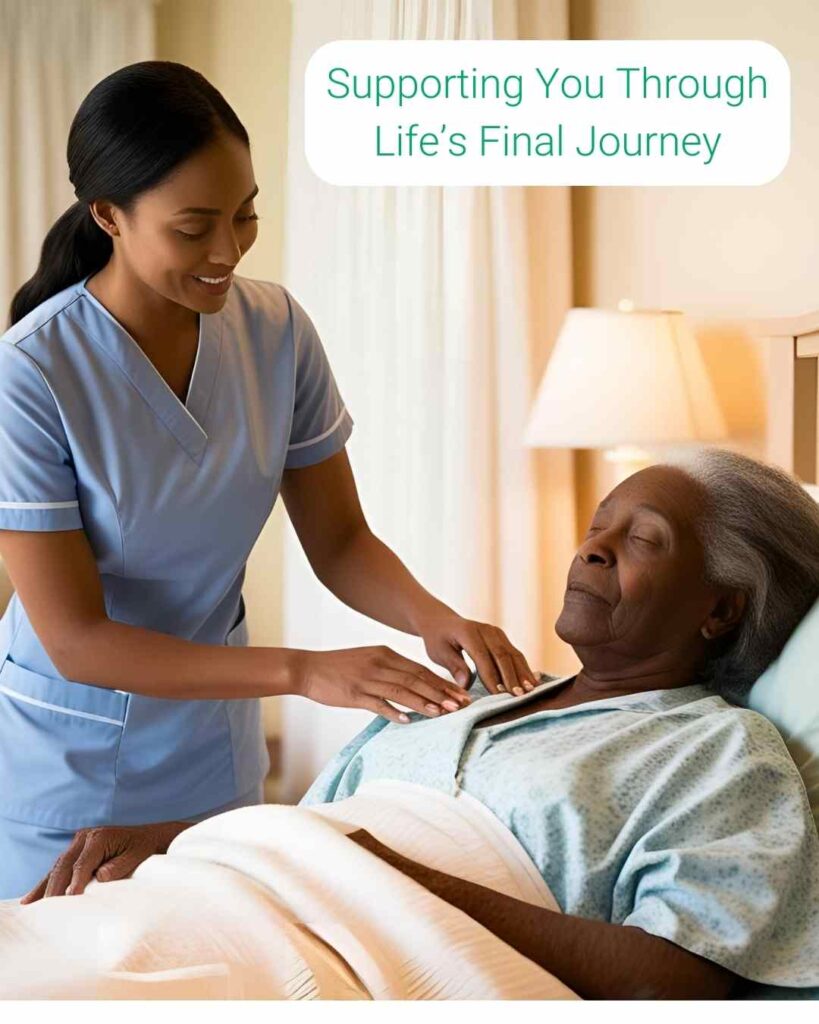 When comfort and care are needed most, KNH is here to provide expert bedside nursing, emotional support, and peace of mind – all in the comfort of your home.
When comfort and care are needed most, KNH is here to provide expert bedside nursing, emotional support, and peace of mind – all in the comfort of your home.
Pain and Symptom Management: Ensuring comfort by managing pain, nausea, and distressing symptoms.
Emotional and Spiritual Support: Helping patients and families navigate the emotional aspects of aging and illness.
End-of-Life Care: Providing compassionate support to individuals in their final stages of life.
Countries with well-developed healthcare systems integrate palliative care into primary care services. In Uganda, Hospice Africa Uganda https://www.hospice-africa.org/uganda/ has led efforts to incorporate palliative care into mainstream healthcare. However, access to skilled palliative nurses remains limited in many developing nations, highlighting the need for more trained bedside caregivers. That is why KNH bedside nurses are very vital in bridging the gap and making sure services are extended to homes where the elderly need them the most and support the existing efforts.
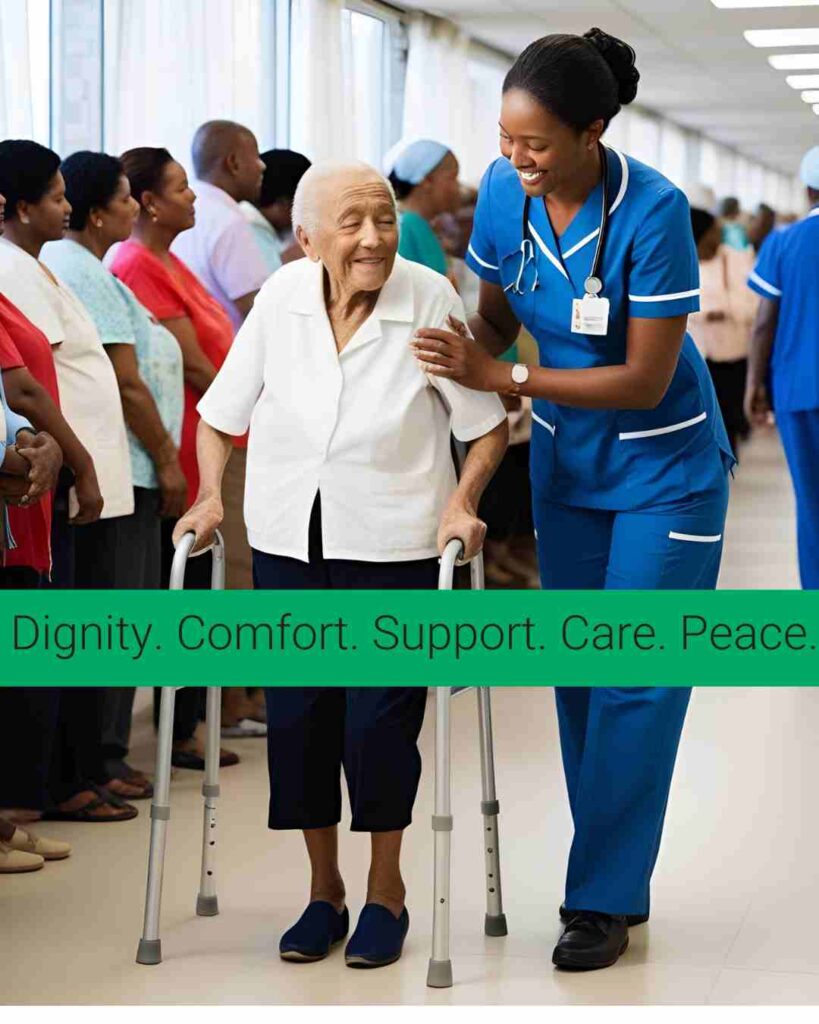 Hospital visits shouldn’t be a hustle in old age. Let us provide dedicated care, guiding you through the lines and offering support when you need it most.
Hospital visits shouldn’t be a hustle in old age. Let us provide dedicated care, guiding you through the lines and offering support when you need it most.
Core Components of Elderly and Palliative Care
Comprehensive Health Assessments
o Regular medical check-ups to monitor chronic conditions.
o Evaluations for cognitive health and functional abilities.
Medication Management
o Ensuring elderly patients take prescribed medications correctly.
o Preventing adverse drug interactions and overdoses.
Nutritional Support
o Developing meal plans that cater to dietary restrictions.
o Preventing malnutrition and dehydration.
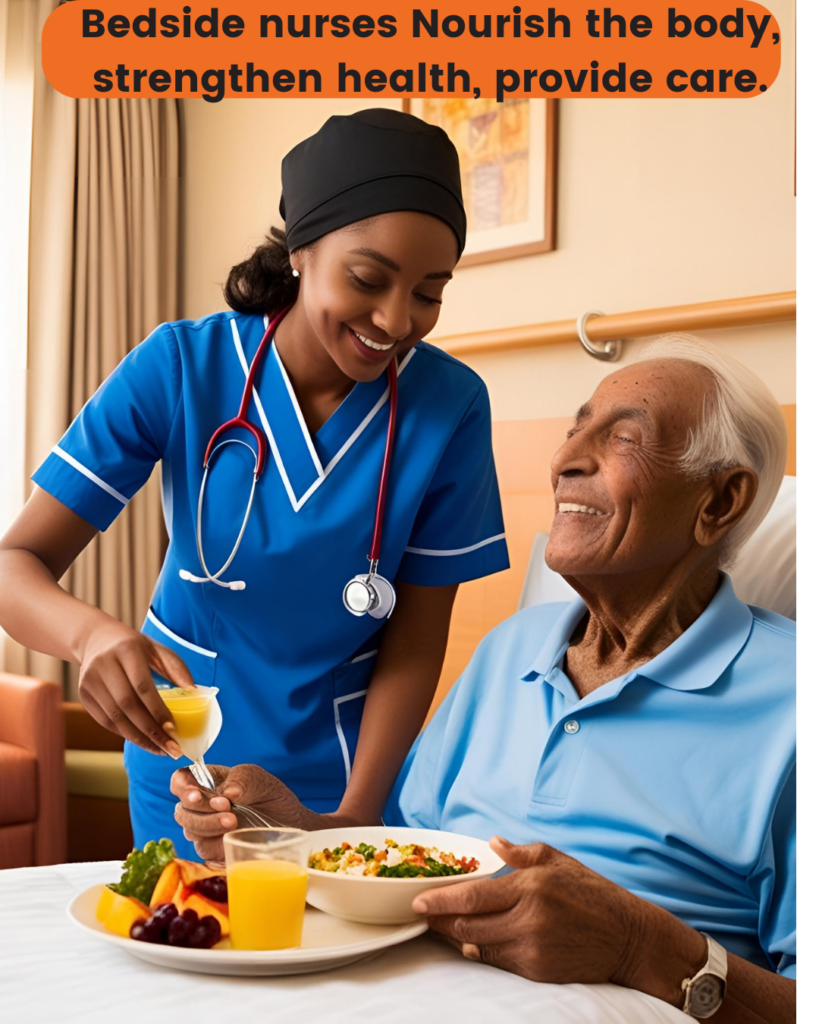 Nourishing the body, strengthening health, providing comfort, ensuring hydration, and delivering compassionate care is all part of bedside Nursing.
Nourishing the body, strengthening health, providing comfort, ensuring hydration, and delivering compassionate care is all part of bedside Nursing.
Mobility and Physical Therapy
o Encouraging physical activity to maintain strength and flexibility.
o Providing mobility aids such as walkers or wheelchairs.
Mental and Emotional Well-being
o Engaging in social activities to prevent isolation.
o Providing access to counseling and mental health support.
Challenges in Elderly and Palliative Care
Limited Resources
In Uganda, the healthcare system struggles with resource constraints that impact the quality of care provided to the elderly. Many healthcare facilities, particularly in rural areas, face significant shortages of trained healthcare professionals, medical equipment, and essential medications.
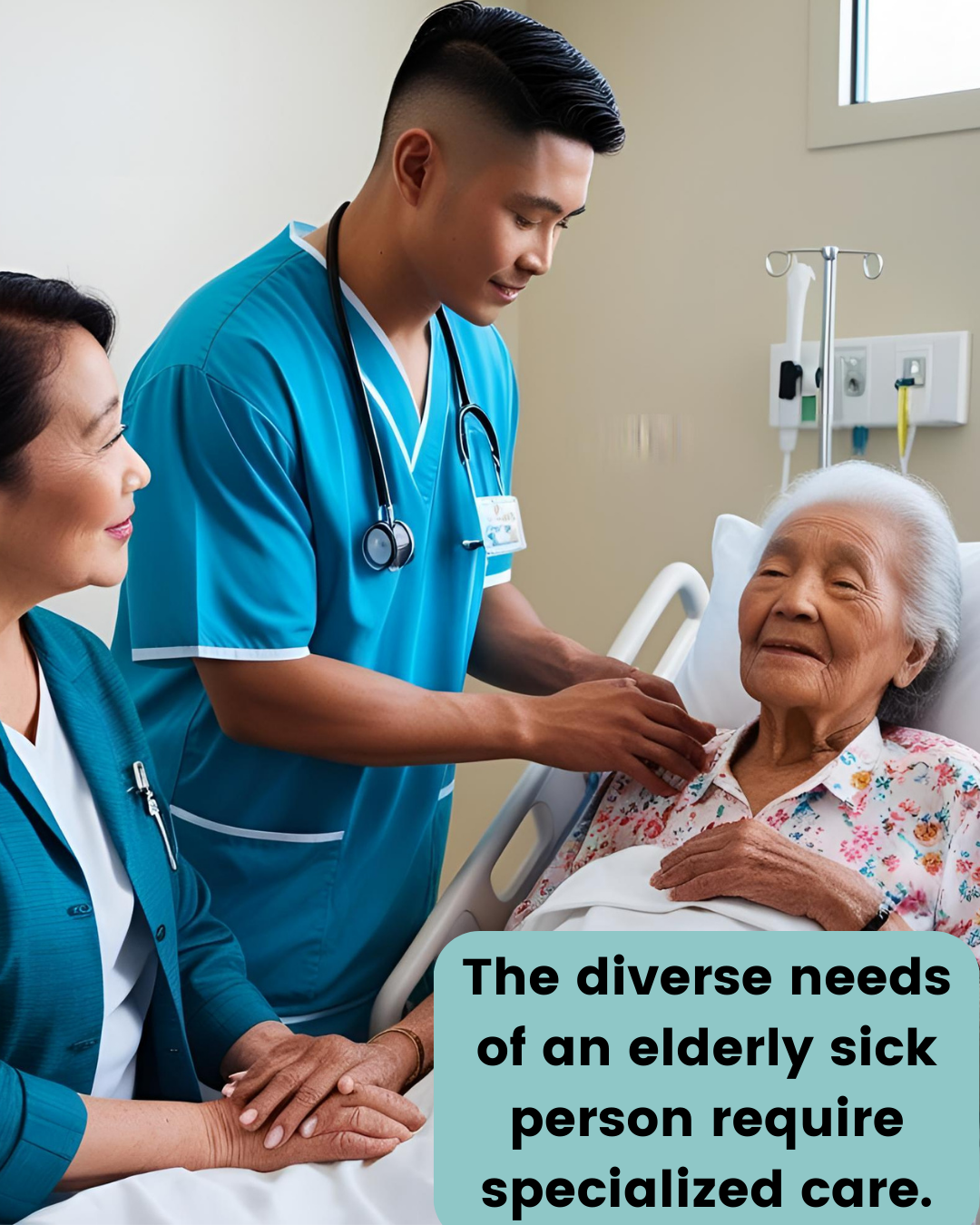 Compassionate care, even with limited resources—because every elderly person deserves support.
Compassionate care, even with limited resources—because every elderly person deserves support.
For example, Uganda has a scarcity of geriatricians and palliative care specialists, with only a few trained professionals scattered across the country, making it difficult for elderly individuals to access specialized care. Additionally, the lack of modern medical equipment, such as wheelchairs, oxygen tanks, and diagnostic tools, makes it challenging to provide proper care for the elderly, particularly those with complex conditions. Public health facilities, which serve the majority of the population, often face long waiting times, overcrowding, and a lack of adequate funding, which further exacerbates the situation.
Emotional and Psychological Strain
Caring for elderly and terminally ill patients takes a heavy emotional toll on families, many of whom lack the support and resources to manage physical, emotional, and psychological needs. The absence of mental health services for caregivers worsens stress and burnout, especially as they juggle personal and work responsibilities.
Cultural and Societal Barriers
End-of-life care remains a taboo subject in Uganda, with many families fearing that discussing death invites misfortune. Deep-rooted beliefs often lead to aggressive treatments or traditional healing over palliative care, delaying essential comfort measures for terminally ill patients.
Family and Patient Resistance
Many families resist palliative care, seeing it as giving up hope. Societal pressure to prolong life often results in unnecessary hospitalizations rather than prioritizing quality of life. Educating families on palliative care’s benefits can help shift these perspectives.
Complex Medical Needs
Elderly patients often suffer from multiple chronic conditions requiring coordinated care. However, Uganda’s fragmented healthcare system and shortage of geriatric specialists result in inconsistent treatment, poor medication management, and increased hospital readmissions. Limited access to follow-up care further complicates their well-being.
At KNH Bedside Nurses, we are committed to bridging these gaps by providing compassionate, professional, and specialized in-home nursing care tailored to elderly and palliative patients. Our trained bedside nurses offer:
✅ Skilled Medical Support – Expertly managing chronic conditions, pain relief, and medication administration.
✅ Emotional & Psychological Care – Providing comfort, companionship, and mental health support to patients and families.
✅ Family-Centered Approach – Educating and involving families in patient care, reducing fear and resistance.
✅ Culturally Sensitive Care – Respecting traditions while ensuring dignified and holistic support.
✅ Convenient Home-Based Services – Bringing professional nursing care to patients’ homes, reducing hospital visits and improving quality of life.
The Future of Elderly and Palliative Care
Advancements in healthcare will shape the future of elderly and palliative care worldwide
Telemedicine and Remote Monitoring
 Bringing Healthcare to Your Fingertips – The Reality of Medicine in Uganda! with providers like https://shop.rockethealth.ug/ to supplement Bedside nurses.
Bringing Healthcare to Your Fingertips – The Reality of Medicine in Uganda! with providers like https://shop.rockethealth.ug/ to supplement Bedside nurses.
o Expanding access to healthcare professionals through virtual consultations.
o Using wearable devices to track vital signs and detect health issues early.
Integrative Therapies
o Incorporating alternative treatments like acupuncture, massage, and music therapy.
o Addressing both physical and emotional aspects of patient well-being.
Improved Training for Healthcare Professionals
o Enhancing palliative care education for nurses and doctors.
o Encouraging specialization in geriatric and palliative nursing.
Policy and Advocacy Efforts
o Strengthening healthcare policies to ensure funding for elderly and palliative care services.
o Raising awareness about the importance of dignified end-of-life care.
Conclusion
Elderly and palliative care are fundamental to ensuring aging individuals receive the support, comfort, and dignity they deserve. Bedside nursing, especially in home care and hospital settings, plays a crucial role in providing high-quality, compassionate care. Thanks to writers like Walter Mwesigye https://www.ntv.co.ug/ug/news/national/benefits-and-challenges-of-telemedicine-4939188 who advocate for policy inclusion of telemedicine to make bedside nursing more meaningful. Nurses at KNH are at the forefront of this vital work, offering expertise and support to patients in their most vulnerable moments. Addressing the challenges in elderly and palliative care requires collaboration among healthcare professionals, policymakers, and families.
To continue advancing this care, we must invest in bedside nursing, expand home-based care programs, and advocate for policies that ensure quality care for the elderly. We call on KNH nurses, alongside other healthcare professionals, to champion these efforts and help build a future where older individuals receive the care they need, regardless of geographical location. Know more about KNH Bedside nurses here https://www.knhbedsidenurses.com/wp-admin/post.php?post=1791&action=elementor and fix your appointment.
